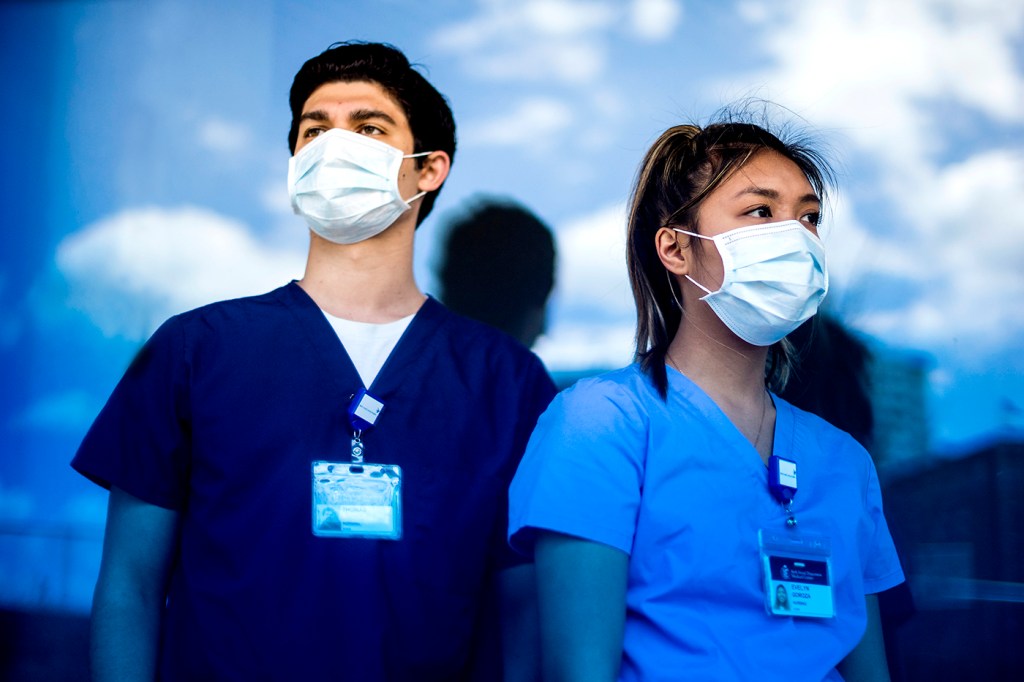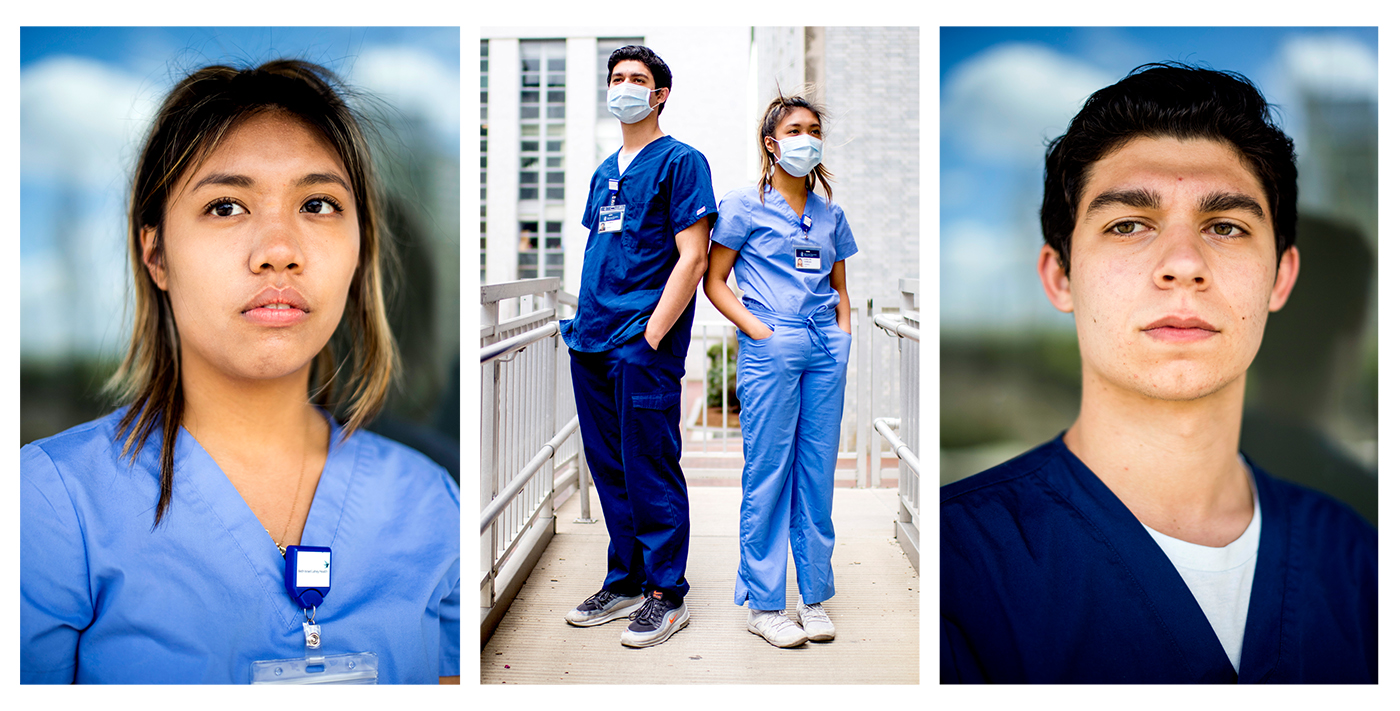They’re caring for COVID-19 intensive care patients on co-op

It’s something Evelyn Goroza and Thomas Cava never would have anticipated when they began their jobs in January at Beth Israel Deaconess Medical Center in Boston.
Over the last few weeks, the cardiovascular intensive-care unit and the cardiac surgery floor, where the two Northeastern co-ops work as patient care technicians, have been transformed into COVID-19 units—putting Goroza and Cava on the front lines of the effort to save lives.
The number of COVID-19 cases in Massachusetts has surpassed 50,000, and now, nearly all of the beds in their units are occupied by people who have or are suspected to have the disease. Goroza, 21, a third-year pre-med biology student, describes her experience caring for them as “extremely shocking, novel, and life-changing.”
They have seen patients whose blood oxygen levels have dropped so low they’ve set off alarms. People who, overnight, have become too weak to talk. Others on ventilators for days on end. Many are in critical condition.
“The decline can be rapid,” says Goroza. “It breaks my heart.”
As patient care technicians, they are responsible for assisting nurses by doing things such as checking vital signs, performing electrocardiograms, and helping patients eat and move.
Cava, 19, a second-year biology student, says an important part of his job is “just talking to patients,” even if they are too sick to hear him or respond.
“It’s comforting talk,” he says. “We tell them, ‘You’re doing okay, and it’s just Thomas and the nurse and we’re going to move you now, so sorry if it’s uncomfortable for a bit,’ or something like that. It’s important to be respectful.”

Their tasks take much longer than usual now, because hospital workers must conform to strict personal protection protocols. Each interaction with COVID-19 patients—whether they are in cardiac arrest or simply in need of a sip of water— requires the change of a washable protective gown and disposable gloves, along with hand sanitization before and after.
“When we first became a COVID floor, it was terrifying to go into the rooms and monitor everything …while also remembering, ‘I need to throw that out’,” Goroza says. “Now I’m more used to it.”
Goroza encourages people who are not healthcare workers to educate themselves about the proper protections for everyday tasks outside of the home.
For instance, she says, N95 respirator masks are generally not necessary to wear while doing things like going to the grocery store.
She and her colleagues use them only when they are conducting aerosolized procedures, including administering nebulized medication or oxygen with face tents, which are likely to release respiratory droplets into the air. Otherwise, they enter COVID-19 patients’ rooms wearing standard surgical masks.
“Seeing people on the streets walking around with N95s is akin to seeing someone walk around with a bullet-proof vest,” she says. “You don’t need it.”
Goroza and Cava emphasize that they are grateful for the opportunity to learn and help patients during the global health crisis, but admit that “it’s a lot” to work in “war mode,” in an unprecedented situation that has shaken some of the world’s most experienced healthcare workers.
“Socially, it’s very weird, and it feels alienating at times,” Goroza says. “A lot of what I’m reading is telling us to stay home and be safe, but what about us college kids on the front lines? Students are still out there, but you don’t hear a lot about it. We’re the youngest people out there fighting this.”
Cava and Goroza, who met on campus last fall while taking an emergency medical technician certification class, say they feel fortunate to be able to relate to each other.
Goroza says she is making more-frequent-than-usual phone calls with her parents, who live in Westborough, Massachusetts. Since “they are older,” she has told them she won’t be able to see them in person until August, after her six-month co-op is finished and she’s taken the necessary time to quarantine herself after her last shift.
Cava and Goroza, who each live with other students in apartments in Boston, say their roommates have also been understanding.
“I have had several conversations with my roommate, who is working from home for her co-op, about what I’m doing, and she’s fine with it,” Goroza says. “I can only imagine what it’s like for other people on the front lines who have to come home to people who aren’t comfortable with it.”
As part of her effort to keep the virus out of their apartment, Goroza changes out of her scrubs before leaving the hospital, then showers immediately after riding home on her bike. She’s also monitoring herself for symptoms. After experiencing the faintest tickle of a sore throat a couple weeks ago, she took a COVID-19 test at work as a precaution, and it came back negative.
Goroza and Cava probably could have left their co-op jobs early, given the circumstances. Staying was a choice.
“I told my nursing director, ‘I want to keep working’,” Cava says, adding that the nurses on his unit have been taking the time to teach him a lot of new things, even during the stressful surge.
“This is what I want to do with my life, and I know because I’ve been doing it and learning things I could never learn in a classroom,” Goroza says. “Even if I have been making the smallest contributions in the hospital, it means something.”
For media inquiries, please contact media@northeastern.edu.




